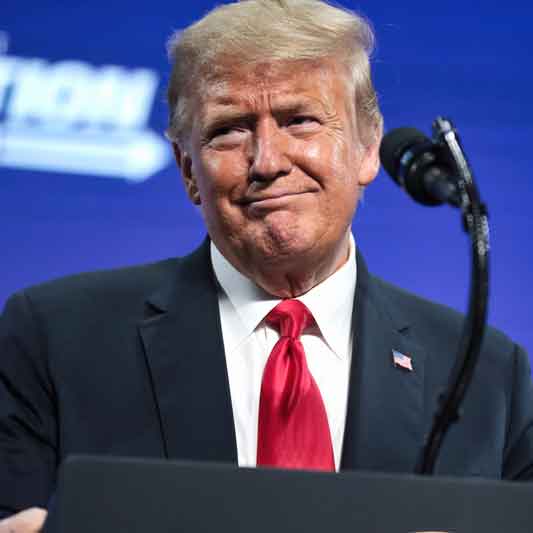In late July, after securing a $16 million settlement with CBS, President Donald Trump turned to Truth Social to issue sharp warnings to NBC and ABC.
He criticized NBC for experiencing a steep 28% decline in viewers, took aim at the network’s leadership, and accused ABC of reporting inaccurately, suggesting their broadcast licenses “could, and should, be revoked.”
In his posts, Trump celebrated the settlement with CBS as a victory over what he calls the “Fake News Media,” and declared that networks like NBC, ABC, The Wall Street Journal, The New York Times, The Washington Post, MSNBC, and CNN were now “ON NOTICE,” warning that their “deceit” would no longer be accepted.
On July 26, Trump kicked off his series of online statements by attacking Comcast, NBC’s parent company, intentionally writing it as “Concast”—a reference to the word “con.”
Later that day, Trump continued his warnings by questioning the broadcast rights of these networks. He maintained that television networks should not serve as “political pawns for the Democrat Party” and argued that the situation had become so severe that revoking their licenses was justified.
As expected, Fox News—widely regarded as supportive of Trump—was not singled out in his criticisms. These comments came amid escalating tensions with mainstream media outlets and followed Trump’s earlier suggestions that late-night hosts like Jimmy Kimmel and Jimmy Fallon could see changes to their shows.
Back in May, Trump threatened fresh legal action against ABC News for its reporting on the $400 million airplane gift from Qatar’s royal family. He attacked ABC’s coverage on Truth Social, referencing a previous $15 million settlement with the Disney-owned network in December over remarks made by anchor George Stephanopoulos.
Trump insisted that ABC should not claim Qatar is giving him a free Boeing 747; instead, he asserted that the plane is being donated to the United States Air Force and Department of Defense, which would result in major savings for taxpayers—despite independent reports suggesting retrofitting the jet for presidential use could cost up to $1 billion.
During his second term, Trump’s social media activity has surged. Data shows he posts to Truth Social about 17 times a day, totaling over 2,200 posts and reposts between January 20 and early June, including more than 1,600 original posts in his first 100 days.
This posting pace is more than triple his X (Twitter) output during the same period of his first term. His posts range from routine endorsements of Republican candidates to holiday greetings that sometimes turn into extended criticisms of his opponents. On Memorial Day, for example, Trump shared a lengthy, all-caps message that went from holiday wishes to sharp attacks on political foes.
In mid-July 2025, Trump initiated a $10 billion defamation suit against The Wall Street Journal, its parent companies Dow Jones and News Corp, two Journal journalists, and media magnate Rupert Murdoch. He alleges that an article detailing a sexually suggestive birthday note attributed to him in a Jeffrey Epstein tribute book was both false and damaging. The suit, filed in federal court in Miami, names Murdoch and others as defendants, asserting “overwhelming” financial and reputational harm. Trump has denied the claims, said settlement talks are underway, and asked the court to move quickly on deposing Murdoch.
Earlier in July, Trump resolved a lawsuit against CBS News and its parent company Paramount, settling for $16 million. The lawsuit, filed in late 2024, concerned a “60 Minutes” interview with Vice President Kamala Harris. The settlement designated the funds for Trump’s future presidential library. As part of the deal, Paramount agreed to release full transcripts of all future interviews with presidential candidates, though it admitted no fault.
In December 2024, Trump settled a defamation suit with ABC News and anchor George Stephanopoulos for $15 million over an interview that incorrectly implied he had been found liable for raping E. Jean Carroll. That agreement also provided $1 million for Trump’s legal fees and included an on-air apology from ABC acknowledging the inaccurate characterization.
Trump has also threatened lawsuits against publications such as The New York Times and CNN over their coverage of a 2025 U.S. strike on Iran. He demanded retractions, claiming their reporting was “false,” “defamatory,” and damaging to him. Both outlets refused his demands, each defending their reporting as consistent with official intelligence.
Altogether, these legal battles highlight a marked increase in Trump’s reliance on litigation against media organizations, regardless of political leaning, through lawsuits, settlements, and threats. Analysts warn that this approach might discourage critical reporting by creating intimidation or financial pressure, even if legal claims are weak or ultimately dismissed.
Consistently, Trump uses Truth Social to deliver these threats, solidifying the platform as his central channel for political communication and policy messaging during his second term.

